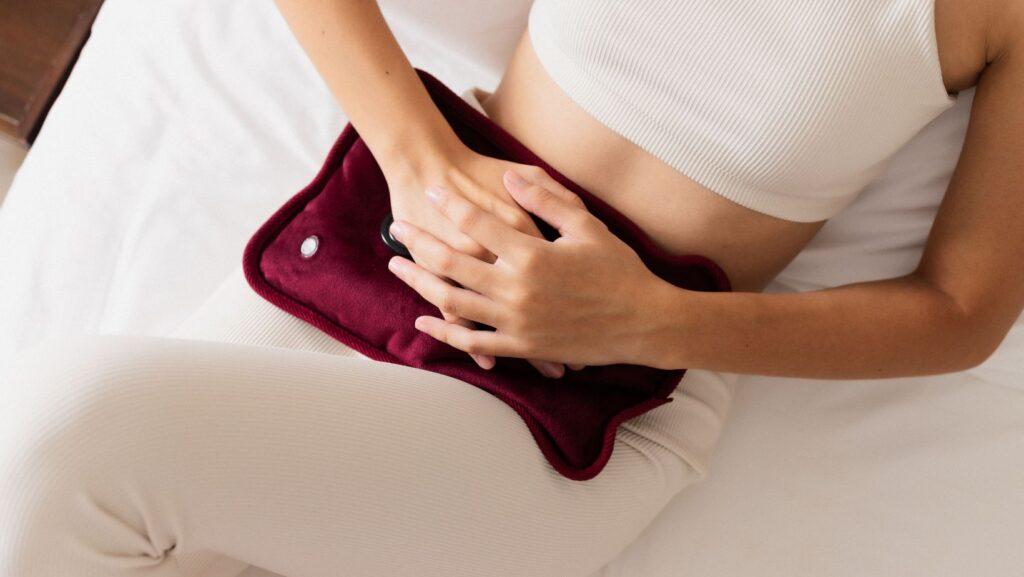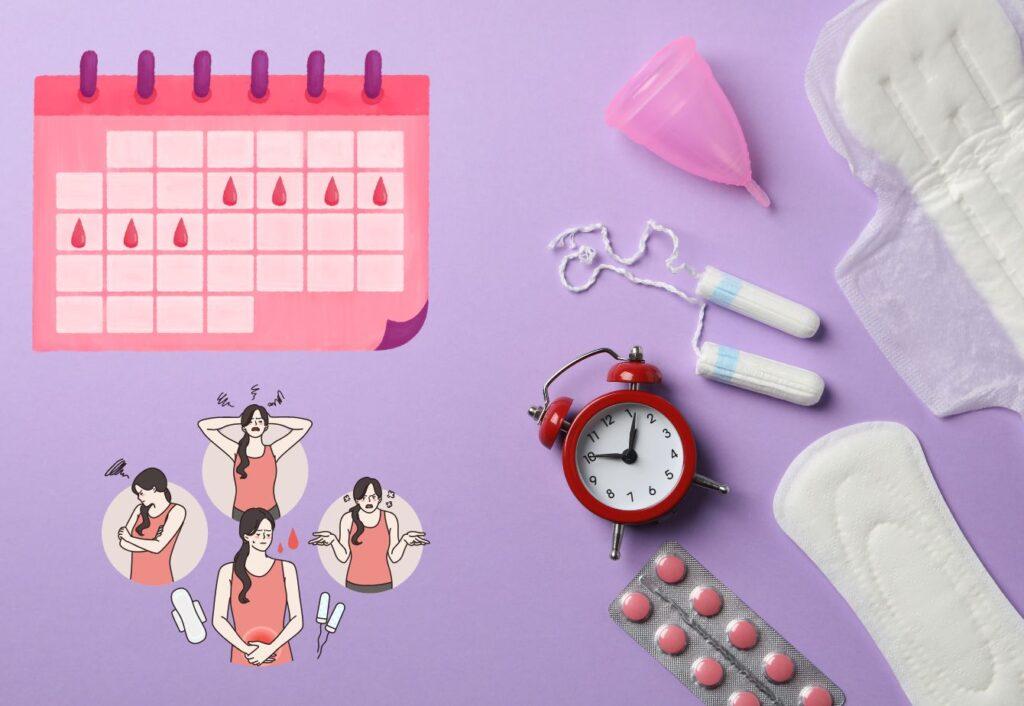We, the women, know what are periods. Periods are a natural and vital process experienced by women during their reproductive years. It is a monthly cycle where the uterine lining is shed, preparing the body for a potential pregnancy. Understanding this fundamental aspect of a woman’s life is crucial for her overall health and well-being. We will delve deeper into the significance of periods and explore ways to overcome challenges associated with menstruation naturally.

Understanding the Menstrual Cycle
The menstrual cycle is a complex and intricate series of events that occur in a woman’s body each month. It typically lasts around 28 days, but this can vary from woman to woman. The cycle involves several distinct phases, each orchestrated by hormonal changes to regulate the reproductive system. These are:
A. The Follicular Phase
The menstrual cycle begins with the follicular phase, during which the pituitary gland releases follicle-stimulating hormone (FSH). FSH stimulates the ovaries to produce mature eggs within fluid-filled sacs called follicles.
B. Ovulation
Midway through the menstrual cycle, typically around day 14, a surge in luteinizing hormone (LH) triggers ovulation. The matured egg is released from the dominant follicle and moves into the fallopian tube, where it awaits fertilization.
C. The Luteal Phase
Ovulation turns the ruptured follicle into a structure called the corpus luteum. This temporary gland produces hormones, mainly progesterone, to prepare the uterine lining for a potential embryo.
Natural Overcoming of Periods
A. Natural Remedies for Menstrual Pain
Menstrual cramps, also known as dysmenorrhea, are a common discomfort experienced by many women during periods. Fortunately, several natural remedies can help alleviate this pain. Applying a heating pad or taking warm baths can provide relief by relaxing the abdominal muscles. Practicing relaxation techniques, like deep breathing or meditation, can reduce stress and ease discomfort. Some women find relief by trying herbal supplements like ginger or chamomile, known for their anti-inflammatory properties.
B. Tips for Managing Period Symptoms
Beyond menstrual pain, some women may encounter bloating, fatigue, and mood swings during their periods. Engaging in regular physical activity, such as yoga, brisk walking, or gentle exercises, can improve blood circulation and release endorphins, which contribute to an overall sense of well-being. Staying active throughout the menstrual cycle can help manage these symptoms effectively.
C. Benefits of Exercise and Physical Activity
Regular exercise is not only beneficial for managing period symptoms but also contributes to better menstrual health overall. It can regulate menstrual cycles, reduce the risk of certain menstrual disorders, and improve mood and energy levels. It is essential to strike a balance, as excessive exercise or intense workouts can disrupt the menstrual cycle.
Dietary Precautions During Periods
A. Foods to Eat for Easing Period Discomfort
A well-balanced diet can play a crucial role in easing period discomfort. Including foods rich in omega-3 fatty acids, such as salmon, walnuts, and chia seeds, can have anti-inflammatory effects, potentially reducing menstrual pain.
Consuming magnesium-rich foods like bananas, spinach, and dark chocolate may help ease muscle cramps. Calcium-rich foods like dairy products can also contribute to reducing premenstrual symptoms.
B. Foods to Avoid to Alleviate Symptoms
Some foods can worsen period symptoms and should be consumed in moderation or avoided altogether. For example, excessive caffeine intake can lead to increased irritability and exacerbate breast tenderness.
Salty foods may contribute to water retention and bloating, while sugary snacks can lead to energy fluctuations and mood swings. It is essential to be mindful of these dietary choices during the menstrual cycle.
C. Importance of Staying Hydrated
Drinking an adequate amount of water during periods is essential to maintain good hydration levels and support the body’s natural processes. Proper hydration can help reduce bloating and alleviate discomfort.
Lifestyle and Self-Care Practices
A. Managing Stress and Emotional Well-being
Menstruation can be emotionally challenging for some women due to hormonal fluctuations. Engaging in stress-reducing activities like meditation, deep breathing exercises, or spending time in nature can help manage emotional well-being during this time.
B. Importance of Proper Sleep
Getting enough rest and sleep is crucial during menstruation to allow the body to rejuvenate and recover from the physical and emotional changes that occur. Prioritizing a regular sleep schedule can contribute to overall menstrual health.
C. Menstrual Hygiene Practices
Practicing good menstrual hygiene is essential to prevent infections and other related health issues. Using clean and appropriate menstrual products, such as pads, tampons, or menstrual cups, is important for maintaining personal hygiene.
Common Myths and Misconceptions
A. Addressing Misinformation about Periods
There are several myths and misconceptions surrounding menstruation that can lead to confusion and stigma. By addressing these misconceptions and promoting accurate information, we can foster a more informed and supportive environment for women.
B. Debunking Menstruation Taboos
Societal taboos and cultural beliefs around menstruation can negatively impact a woman’s confidence and self-esteem. Breaking these taboos and promoting open discussions can help remove the stigma associated with periods and promote a positive attitude toward this natural process.
Understanding what periods are and how they function is crucial for every woman’s well-being. Women can navigate their menstrual journey with greater ease and comfort by exploring natural overcoming techniques and adopting dietary precautions. Empowering women with knowledge about menstruation and its management fosters a sense of confidence and control over their bodies and lives.
It is essential to encourage open conversations about periods, debunk myths, and promote menstrual health to ensure a healthier and more inclusive society for all women. Embracing menstruation as a natural part of life enables women to celebrate their bodies and embrace their unique experiences with strength and resilience.
Read: How to Safely Delay Your Period for a Stress-Free Vacation?






